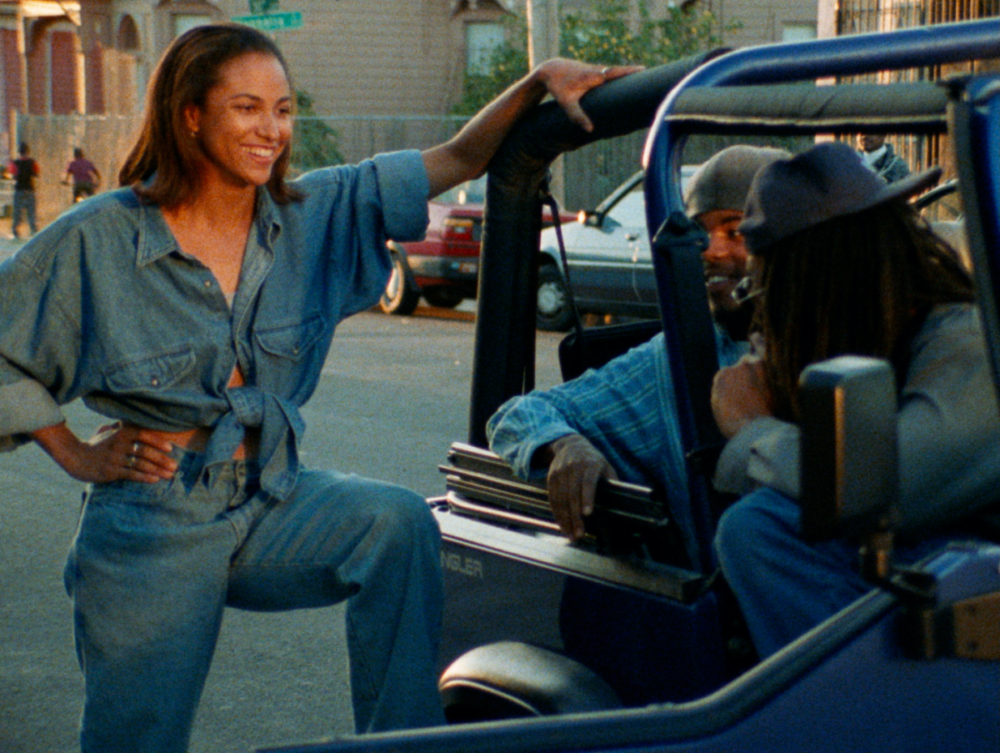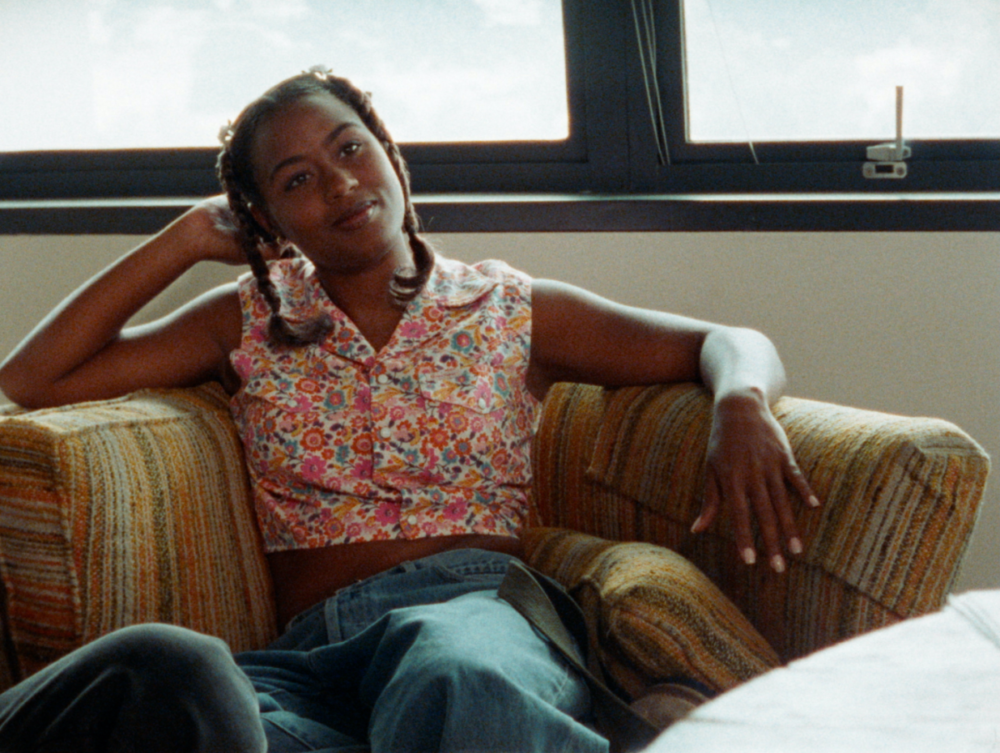
- Source: HYPERALLERGIC
- Author: EILEEN G'SELL
- Date: MARCH 17, 2023
- Format: DIGITAL
Cauleen Smith’s Drylongso Depicts a Bygone Oakland
Smith’s 1998 film exudes the DIY charm of a low-budget, first-time feature while keenly depicting the complexities of both race- and gender-related inequalities

Drylongso, dir. Cauleen Smith, 1998 (all images courtesy Janus Films)
To the pulsing beat of Masauko Chipembere’s “Beautiful People,” a montage of Oakland flashes between zine-like, stop-motion opening credits: the Fox Theatre’s Art Deco facade, waggy-tailed dogs behind chain-link fences, women swaying their hips in sync on the pier. Welcome to Cauleen Smith’s 1998 Drylongso, a film as joyful as it is sobering, an homage to both the West Oakland district in which it was shot and the Black-American idiom for which it was named.
Recently restored by Janus Films, Drylongso exudes the DIY charm of a low-budget, first-time feature (it was Smith’s MFA thesis for UCLA), while keenly depicting the complexities of both race- and gender-related inequalities. West Oakland is decidedly not a hotbed of destitution and despair, but rather home to a close-knit working- and middle-class community — a place of candy-colored houses with echoing staircases, sun-splotched sidewalks, and Black-owned bookstores. Drylongso’s heroine, Pica Sullivan (Toby Smith), is a photography student who stashes extra cash in a refrigerated Sanka can, and who hangs her Bob Marley poster over a small trampoline that functions as a nightstand for her college textbooks and landline phone.
A friendly (if feisty) neighborhood flaneuse, Pica comes to the rescue of Tobi (April Barnett), whose abusive boyfriend ditches her in front of the house Pica shares with her mother. “If you want, I can call someone for ya,” Pica offers, her braids glowing under the street lamps. Reintroduced a few scenes later, Tobi’s ribbed sweater dress is swapped for an oversized hoodie and bandana that together conceal her gender. “Now when I walk down the street, White folks move out of the way,” Tobi explains. “And I don’t miss being called a ‘bitch’ just because I don’t talk to some boy and his friends rolling by in a car.”

Drylongso, dir. Cauleen Smith, 1998
The film’s feminist sympathies include compassion for both Black women enduring the violence of patriarchy and the Black men whose lives are imperiled under white supremacy and the carceral state. “The life expectancy of Black males is lower than most men in third world countries,” Pica shares, alongside other disturbing stats, with her professor, Mr. Yamada (Salim Akil, who co-wrote the film), a kente-donning intellectual distressed by her poor attendance. Eschewing the 35mm methods of Yamada’s course, Pica ardently documents the young men of Oakland — several of whom are later killed by the notorious “West Side Slasher” — with her trusty burgundy Polaroid.
Though a few plot twists feel forced (like Tobi’s ability to take down said Slasher with a 9mm in the dark), as an artifact of the late 1990s — a decade before the Obama presidency, before Oakland’s dramatic gentrification, and more than two decades before national protests against police brutality reached a fever pitch — Drylongso feels at once bygone and terribly prescient. At the same time, part of the movie’s brilliance is not trying too hard to be more than it is: a film about a Black female art student made by a Black female art student.
For her final photography exhibition, Pica bucks the standard gallery set-up for a vacant corner at Magnolia and 30th, assembling her Polaroids of slain young men into multimedia “shrines” comprised of everything from rusty Schwinns to dangling mint tins. Friends and neighbors introduced earlier in the film gather around a buffet of barbecue and collared greens, admiring the portraits and exchanging words. “I must be the worst student you ever had,” Pica says sheepishly to Mr. Yamada when he visits her show. “No,” he replies, “just the most determined.”
Drylongso screens at Film at Lincoln Center’s Elinor Bunin Munroe Film Center (144 W. 65th Street, Lincoln Square, Manhattan) March 17–23, with a national rollout to follow.

